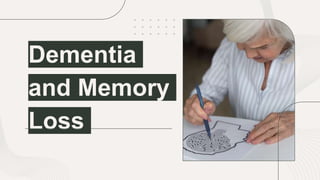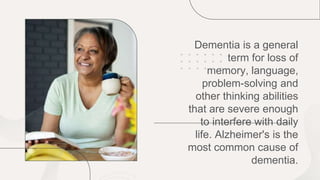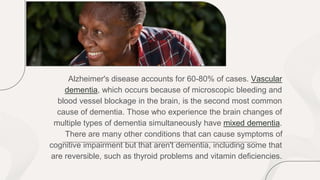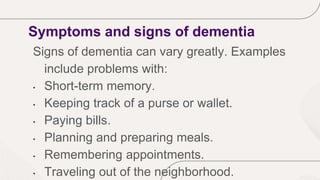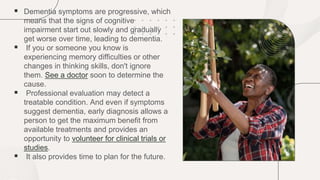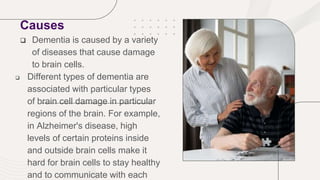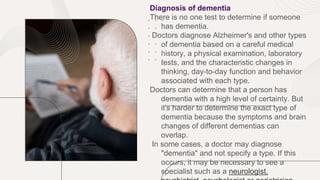Dementia is a general term for loss of memory, language, and thinking abilities severe enough to interfere with daily life. Alzheimer's disease accounts for 60-80% of cases of dementia. Symptoms of dementia are progressive and vary between individuals but can include problems with memory, paying bills, meal preparation, and getting lost. Doctors diagnose dementia based on medical history, exams, tests, and the characteristic changes in thinking and behavior associated with different types of dementia.
